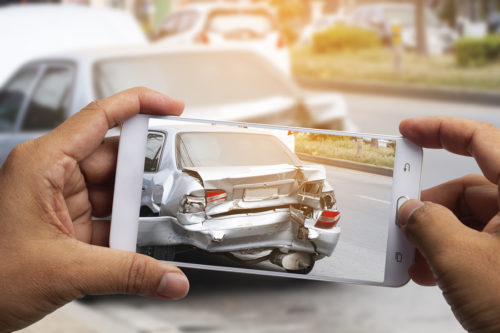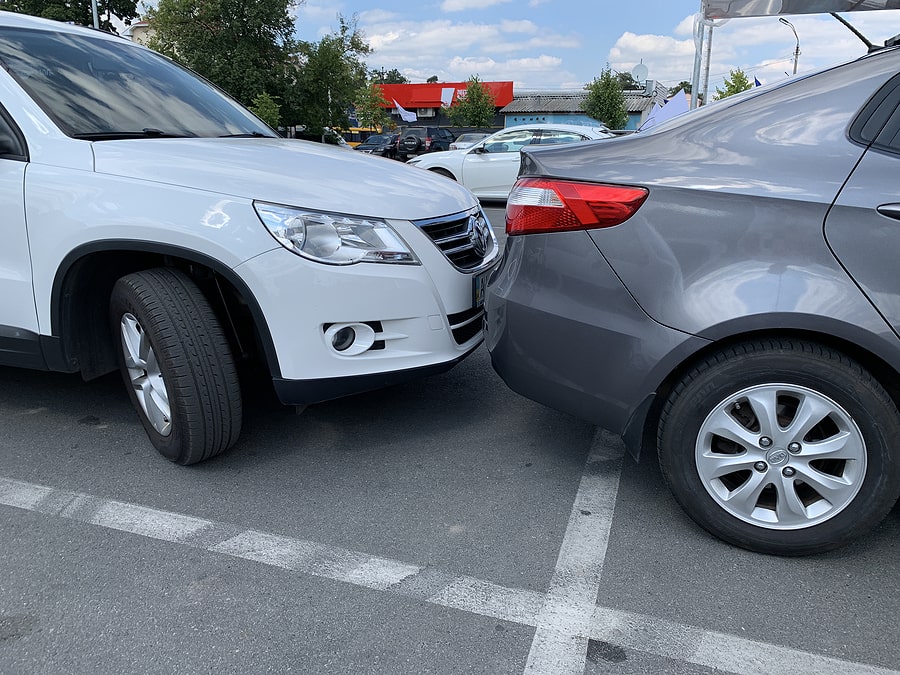No one wants to get into an accident with a truck. Most of the time, it doesn’t turn out so well for the smaller vehicle. Trucks are huge, heavy, and often carry hazardous loads. Motorists, bicyclists, and pedestrians bear the brunt of the impact in a collision with a truck, and endure the bulk of the injuries. Many of those injuries are fatal. Even those who escape with their lives could face years of pain and disability.
It’s a basic principle of our legal system that the people or companies who cause truck accidents should pay for the damage they inflict. But, how does an injured victim of a truck accident find out who those people are? And, how does that victim prove they caused the accident and the victim’s injuries? How do you properly investigate a truck accident?
That’s what we tackle in this blog post.
For Starters, YOU Don’t Usually Investigate; Your Attorney’s Team Does.
We have enormous respect for our clients. Many of them are going through an awful period, facing physical, emotional, and financial challenges they never imagined. They shouldn’t have to carry the load of investigating the circumstances of their accident, and they don’t.
Hiring an experienced, well-resourced attorney means getting a team—not just one lawyer, but a group of top-notch professionals—who make it their mission to uncover every detail of your truck accident. You can rest easy and concentrate on healing, knowing your lawyer’s team is turning over every stone and shining light in every dark corner to find out who might have liability for the damages you suffered in truck accident, how you can prove that liability, and whether the parties with provable liability also have the money to pay you the damages you deserve.
Below, we walk you through each of those steps. Just to be clear, you should understand that investigations don’t usually unfold as neatly as we explain them below. Lots of investigative activity usually happens all at once. Good lawyers know how to keep track of all the details.
Investigating WHO Might Have Liability to You.
You can’t file a complaint against someone until you know who they are. So, one of the first jobs in any investigation is to figure out who all the parties are who MIGHT have legal liability to you for damages. In a truck accident, that can be a wide variety of people.
Let’s start with everyone associated with the truck itself. You’ve got your driver, obviously, as well as the driver’s employer. The owner of the truck, which is often someone other than the driver or his employer, may also share liability. If it’s a tractor-trailer, the owner of the trailer might be someone different still. Then you have the party that loaded the truck, the party who owns the cargo, the mechanic who last serviced the truck, and the manufacturers of the truck and all of the truck’s parts. Any of these parties, often more than one, could have potential liability to you for causing a truck accident.
But that’s not all: Sometimes the cause of a truck accident has nothing to with the truck. Sometimes it’s some external factor, like another vehicle, or a dangerous road condition, or a faulty traffic or railroad crossing signal. The parties responsible for those factors could also have liability to you for causing the accident.
There are potentially several parties who could potentially owe you money for injuries after a truck accident. So, how does your attorney’s team find them? Kind of the way you’d expect, actually. The team gathers up all of the available records of the crash and starts sifting through them. Police reports, traffic cameras, eyewitness statements, press photos, insurance claims… you name it. The goal is to make sure every party who might have some connection to the crash gets identified.
Once identified, your lawyer’s team starts working through the list of parties and eliminating the ones who probably didn’t cause the crash. Every crash scene and accident report tells a story about the physical “mechanics” of a crash, like who-hit-who, what the final resting position of each vehicle says about how the accident occurred, and so on. That evidence gives clear indications of who you can cross off the list of potentially-liable parties.
At the risk of oversimplifying, what your attorney and his team are after is evidence pointing to who could have done something differently that would have probably prevented the crash. A driver who should have gotten more rest. A mechanic who should have tightened a connection. A road engineer who should have made a curve a little less sharp. In a lot of accidents, there are more than one of these parties who could have made better decisions that would probably have prevented you from getting hurt. In a nutshell, out of all the people and companies who were somehow connected to the truck accident that left you injured, THOSE are the parties who you might be able to sue for damages.
Investigating HOW to Prove Liability
Once your attorney’s team has identified the parties most likely to have liability to you, the investigation turns to figuring out how to prove their liability. In most truck crash cases, proving a party has liability for your injuries requires presenting evidence to the jury showing four things:
- The party owed you a duty of care. In life, we all have a responsibility not to take actions that are probably going to hurt other, innocent people. That responsibility is what lawyers call a “duty of care.” For someone to have liability to you, they must have owed you a “duty of care” not to take some action that will put you in harm’s way. Truck drivers, for example, owe you a duty not to drive recklessly, because that puts other motorists in danger.
- The party breached its duty of care. Simply put, this means the party acted in a way that went against their responsibility not to do you harm. A truck who speeds likely violates his duty of care to other motorists, for example.
- The breach of a duty of care harmed you. This is what lawyers call “causation.” It means that the careless or reckless behavior of someone who owes you a duty of care must lead to the harm that was done to you. For example, a trucker who speeds violates his duty of care, but if his speeding had no connection to why the truck accident happened, he probably doesn’t have liability to you. On the other hand, if the trucker speeding was the reason the accident happened, this “causation” requirement is met.
- The harm left you damaged. In other words, you incurred economic losses or pain and suffering as a result of the harm from the accident. In most truck accident cases, this is a no-brainer. OF COURSE you suffered damages! Why else would you be talking to a lawyer?
For any party your attorney thinks might have liability to you, his team must dig up evidence that proves each of these “elements.” So, in the example of the speeding trucker, you need evidence, such as a police report or traffic camera footage, to show how fast the trucker was going. You need witnesses, including your own witness testimony, to prove that the speeding truck collided with your car. And you need evidence, such as medical bills pay stubs, and more testimony, to show how much you’ve suffered because of the injuries the accident caused.
Sometimes, the investigation also involves hiring experts, like accident reconstruction specialists, to analyze the accident scene to prove how the accident happened. It might also mean having you evaluated by medical specialists who can explain exactly how the impact of an accident led to your injuries, and what the likely cost of those injuries will be over your lifetime.
When lawyers talk about “building a case,” it’s this part of the investigation they’re usually talking about.
Investigating WHETHER the Liable Parties Can Pay You.
Legal liability is important, but if the party liable to you can’t pay, then it doesn’t do you much good. That’s why experienced truck accident lawyers spend time figuring out which of the parties with legal liability to you ALSO have the ability to pay damages to you. What are the likely sources of payment of damages in a truck accident case? Let’s take a look at a few of them.
Insurance
Every motorist is required to carry insurance. That includes truckers and trucking companies. Like any motor vehicle accident, victims of truck accidents can expect to look to the insurance carried by the person who caused the accident for payment of damages. Insurance is extremely important in truck accident matters. When the party with liability carries insurance, it increases your odds, as an accident victim, of receiving compensation. But, keep in mind, insurance companies also try to limit their own liability. So, while they’re a reliable source of payment of damages in many cases, they also fight hard to pay the minimum they have to. Having an experienced truck accident attorney on your side can help ensure the insurance companies play fair.
Corporate Assets
When the party with legal liability to you is a corporation, like a trucking company or a manufacturer of truck parts, the assets of the corporation may also be available as a source of money to pay your damages. Oftentimes this becomes a consideration when the company doesn’t carry enough insurance to cover all of your losses, or when the company “self-insures” rather than carrying commercial insurance. But, keep in mind that corporations may also have the ability to seek protection from paying you by resorting to corporate bankruptcy. An experienced truck accident attorney will explore whether a corporation has sufficient assets to cover a damages claim without there being a risk of the company running to the bankruptcy court.
Personal Assets
Sometimes, the party with liability to you is an individual person, like the trucker in the example above. Most of the time, individuals carry insurance. But, sometimes, their insurance isn’t enough to cover your damages, or they violate the law and drive without insurance. When that happens, your attorney may explore whether the individual with legal liability to you has personal assets sufficient to pay your damages.
Now, realistically, most people don’t have enough cash sitting around to pay the damages to someone badly injured in a truck accident. But, every once in a while there is someone involved in a truck accident who, individually, has very “deep pockets.” In those cases, your attorney may advise you that it’s worth your trouble to pursue a legal claim against that individual, because you know that individual’s personal assets could be enough to pay the damages owed to you.
Call a Nationally Recognized Truck Accident Attorney
Have you suffered an injury in a truck accident? Has a family member tragically died in one? Don’t wait to call an attorney. The sooner your attorney can get involved in a case, the better the chances you will recover compensation from every party with the means to pay. Don’t miss out on your chance to recover the damages you need; the law is on your side, and no victim of a trucking accident should have to go without justice.





